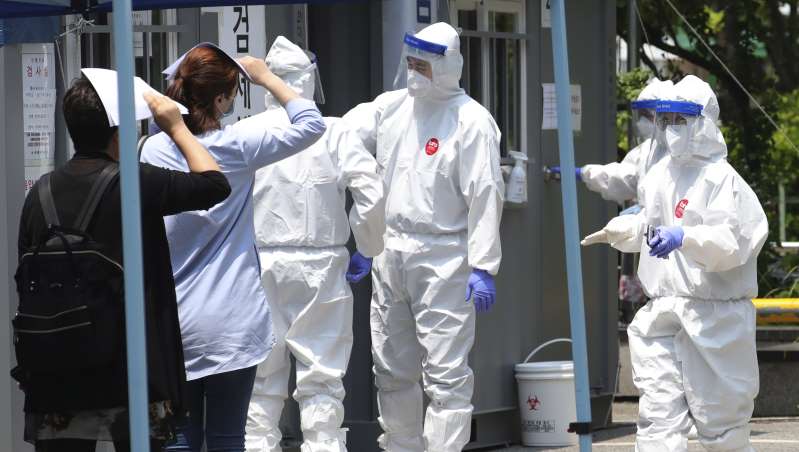
OMS: There are 7 or 8 good candidates for COVID-19 vaccine
EDITH M. LEDERER

© Provided by the Associated Press People who may have the new coronavirus wait to be tested at a test post in Bucheon, South Korea, on Thursday May 28, 2020. (Yun Hyun-tae / Yonhap via AP)
UNITED NATIONS (AP) - There are approximately seven to eight "top" candidates for a vaccine for the new coronavirus, and work on them is accelerating, WHO Director-General Tedros Adhanom Ghebreyesus said Monday.
In a video session of the UN Economic and Social Council, Tedros said two months ago it was believed that the vaccine would take between 12 and 18 months. But he added that an accelerated effort is underway, with support from 7.4 billion euros ($ 8 billion) promised a week ago by leaders of 40 countries, organizations and banks for research, treatment and testing.
He added that the $ 8 billion will not be enough and that additional funds will be needed to accelerate the development of a vaccine, but more importantly, to produce enough "to make sure this vaccine reaches everyone."
"Now we have good candidates," said Tedros. "The main ones are around seven, eight, but we have more than 100 candidates."
"We focus on the few candidates we have who are likely to perform better and accelerate those candidates with more potential," he added.
Tedros did not identify those candidates.
Since January, he noted, "WHO has been working with thousands of researchers around the world to accelerate and track the development of a vaccine, from the development of animal models to clinical trial designs and everything in between."
Tedros said there is also a consortium of more than 400 scientists involved in vaccine development and diagnosis.
The WHO director emphasized that COVID-19 is "very contagious and a killer", with more than 4 million cases reported to the WHO and almost 275,000 deaths.
Although new cases are declining in Western Europe, they are increasing in Eastern Europe, Africa, Southeast Asia and other regions, he added.
"The pandemic is teaching us many painful lessons," he said, especially the importance of having strong regional and national health systems.
“And yet, with current trends, more than 5 billion people will not have access to these essential services by 2030,” such as the chance to see a health worker, access basic medicine, and have clean water in hospitals. he commented.
He emphasized that as the COVID-19 pandemic is addressed, countries must also lay the foundation for a healthier, safer and fairer world.








